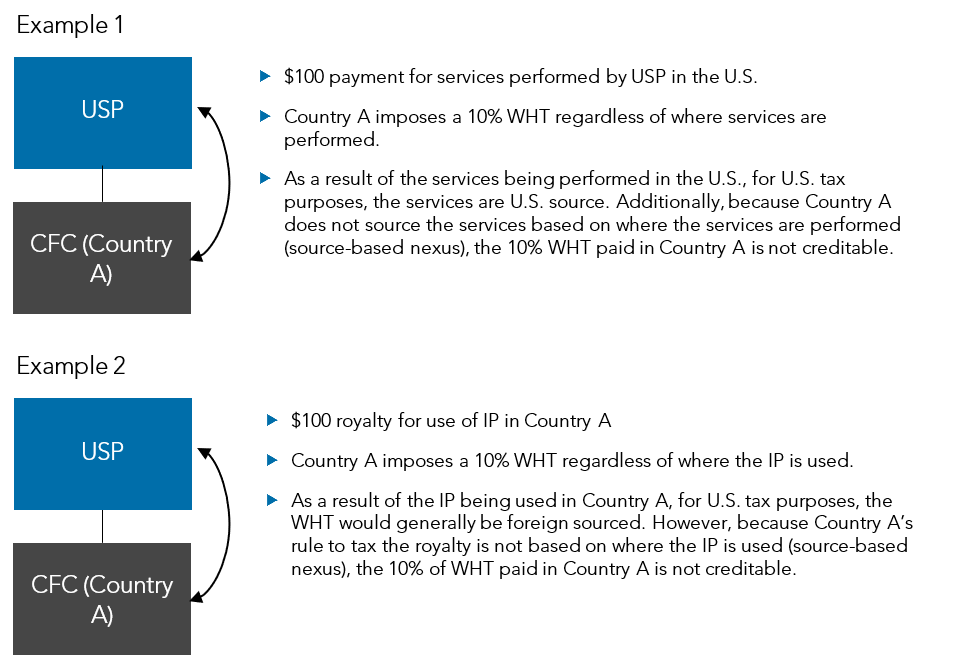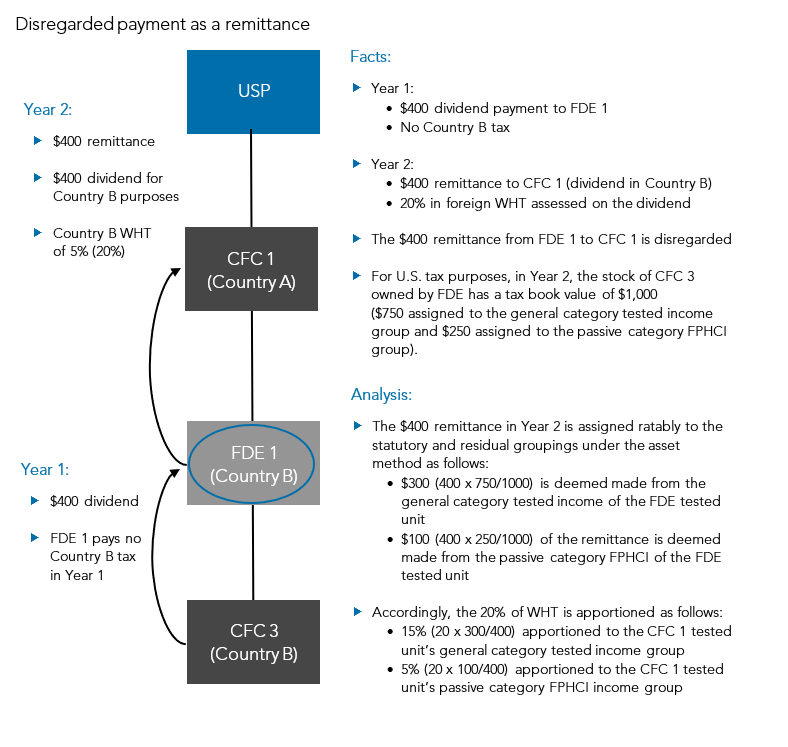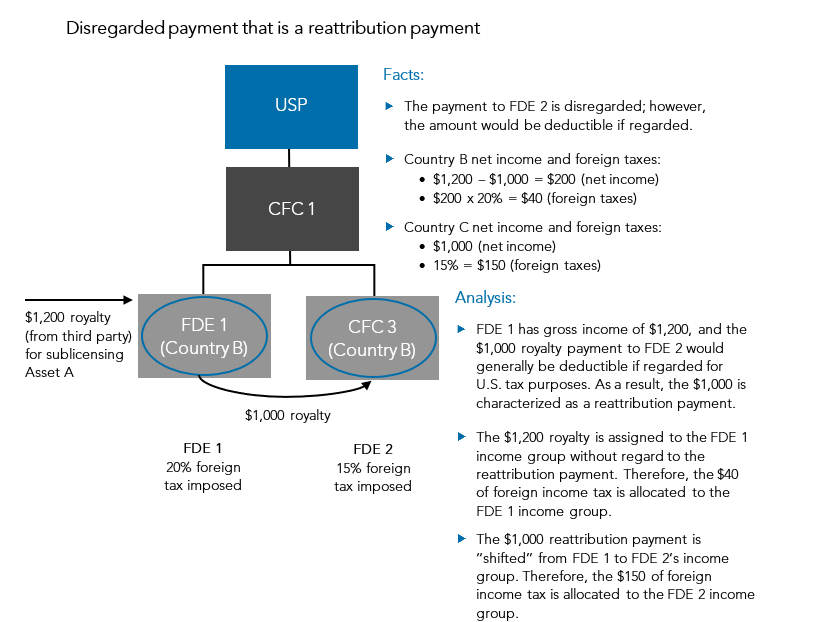Key Impacts of the Final Foreign Tax Credit Regulations

The U.S. Department of the Treasury and the Internal Revenue Service released final regulations on the foreign tax credit (FTC) on December 28, 2021. While the 2021 final FTC regulations generally follow the proposed regulations released on September 29, 2020, the final regulations include several important changes.
Of particular significance to U.S. multinationals, the final regulations add a new “attribution requirement” to the determination of whether a foreign levy constitutes a creditable foreign income tax. In addition, taxpayers should be mindful that some of the rules in the final regulations have retroactive effect.
While the 2021 final regulations cover a variety of important topics, two significant areas include the creditability of foreign taxes under Sections 901 and 903 and the allocation and apportionment of foreign income taxes under Section 861.
Creditability of Foreign Taxes
Overview
Section 901 allows a credit for, among other items, foreign levies that are considered income taxes paid to a foreign country. A foreign levy is a foreign income tax only if it meets the following criteria:
- It is a foreign tax; and
- It is a net income tax or a tax “in lieu of” an income tax.
Prior to the 2021 final regulations, as part of determining whether a foreign tax was a net income tax, the foreign tax was required to meet a “net gain requirement,” which under the previous regulations consisted of three tests:
- a realization test;
- a gross receipts test; and
- a net income test.
The 2021 final regulations largely retain the net gain requirement, with some modifications. The most significant modification is the addition of a fourth test to the net gain requirement – referred to as the “attribution requirement.”
Attribution Requirement
The 2021 final regulations introduce and incorporate the attribution requirement into the net gain test. Under the attribution requirement, a foreign tax generally will not be creditable unless the foreign tax law requires sufficient nexus between the country and the taxpayer’s activities.
The standard for whether sufficient nexus exists depends on the type of income the tax is being imposed on and whether the tax is being imposed by the local country on a resident or a nonresident, as summarized below.

Insights
The final regulations’ attribution requirement will likely result in additional U.S. tax for U.S. multinationals that operate in countries whose tax systems do not have nexus requirements that are sufficiently similar to the requirements imposed under U.S. tax laws.
U.S. taxpayers that claim FTCs should reassess the creditability of their foreign taxes on a jurisdiction-by-jurisdiction basis. Some foreign taxes potentially impacted by the attribution requirement include:
- Digital services taxes
- Withholding and other taxes imposed on services performed outside the country imposing the tax
- Taxes on royalties not based on sourcing rules similar to those imposed by the U.S. (i.e., place of use)
- Taxes imposed by jurisdictions that do not follow the arm’s length principle
- Certain Puerto Rican excise and income taxes
Treaty benefits between the U.S. and the foreign jurisdiction may potentially mitigate the result of a foreign tax not being creditable under the final regulations in certain circumstances.
Examples
The following are two basic examples illustrating the potential effects of the sourcing-based rule for nonresidents as a result of the 2021 final regulations:

Effective Date
The 2021 final regulations pertaining to creditability under Sections 901 and 903 apply to foreign income taxes paid or accrued in tax years beginning on or after December 28, 2021.
Allocation and Apportionment of Foreign Income Taxes
Overview
The rules and regulations under Section 861 govern the allocation and apportionment of expenses (including foreign income taxes) among income groupings for purposes of determining a taxpayer’s foreign tax credit limitation. The 2021 final regulations generally follow the 2020 proposed regulations for allocating and apportioning foreign income taxes on the following:
- Disregarded payments made between “taxable units” (discussed below)
- Dispositions of stock and partnership interests
- Distributions by partnerships
Additionally, the 2021 final regulations introduce a new rule for foreign gross income pertaining to U.S. equity hybrid instruments. Specifically, foreign income tax on foreign gross interest income generated by a U.S. equity hybrid instrument is allocated to the income grouping to which distributions pertaining to the instrument are assigned.
Under the 2021 final regulations, a U.S. equity hybrid instrument is an instrument that is stock or a partnership interest under federal tax law but is debt or otherwise gives rise to the accrual of income that is not treated as a dividend or a distributive share of partnership income under foreign law.
Disregarded Payments
The 2021 final regulations provide guidance regarding the allocation and apportionment of foreign income taxes with respect to disregarded payments between taxable units of the same taxpayer. Taxable units, as defined, include foreign branches, foreign branch owners and non-branch taxable units (such as foreign disregarded entities that do not give rise to branches from a U.S. tax perspective).
As set out in the following diagram, when determining the allocation and apportionment of foreign income taxes with respect to disregarded payments, the final regulations categorize a disregarded payment as one of the following types:
- a reattribution payment (i.e., income in the amount of the payment is reattributed from the payor taxable unit to the taxable unit receiving the payment);
- a contribution; or
- a remittance.

Examples
The following examples illustrate the mechanics of the 2021 final regulations regarding reattribution payments and remittances.


Effective Date
The 2021 final regulations pertaining to the allocation and apportionment of foreign income taxes apply retroactively to tax years that begin after December 31, 2019, and that end on or after November 2, 2020.
Insights
Taxpayers should take steps to identify their disregarded payments to determine the proper method of allocating and apportioning foreign income taxes for FTC limitation purposes. As these provisions of the final regulations are retroactively effective for tax years that begin after December 31, 2019, taxpayers should identify positions taken on previous tax returns to determine if they are consistent with the 2021 final regulations, or whether an amended return or potential controversy procedures should be considered.
Connect with an Advisor
If you have questions about how these regulations will impact your business, please contact your Warren Averett advisor directly, or have a member of our team reach out to you.

